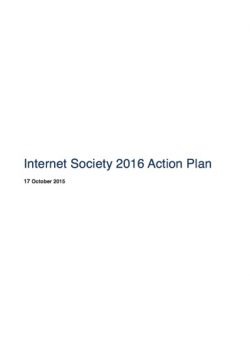For decades the Internet has been heralded as a transformative platform, and the Internet Society since its founding nearly 25 years ago has been committed to a vision of an Internet for everyone.
Today we live in an era of connectedness where the creativity of more than three billion people has unleashed new uses and capabilities that infuse nearly every aspect of our everyday lives. As more people have become connected, the Internet’s value has increased exponentially. At the same time, the cost of being unconnected has increased dramatically. The divide between the connected 3 billion and the unconnected 4.3 billion is not just digital: it is economic, social, and political. Thus, we, the global Internet Society community, are ever more acutely driven by the imperative of connecting the unconnected.
At the same time, an increasing number of security and privacy issues have undermined trust in the Internet itself. Government surveillance, corporate and government data breaches, practices that erode privacy, mass hacking incidents, and systemic gaps in security practices have led to disillusionment among Internet users about their ability to control their online destiny. Even a universally deployed network, untrusted, will languish as people forgo its use in promising areas such as medicine and learning. Therefore, we are driven to focus on ensuring those who are connected can use the Internet with confidence.
In short, the Internet has changed and continues to change everything for those who are connected, and those who once connected trust it enough to use it in new and audacious ways. In 2015 the Internet Society built the resources and assets that have enabled us to focus on the opportunities and most pressing challenges the Internet faces today. In 2016 the Internet Society is uniquely positioned and motivated to advance in connecting everyone who is unconnected, and promoting and restoring the trust in the Internet.
In this work, we are guided by our vision, we are focused on our goals, and we are driven to be bold. We again have organized around a few Strategic Objectives:
- Facilitate and promote policy environments that enable the continued evolution of an open and trusted Internet
- Increase the global relevance and recognition of collaborative, bottom-up, technical, consensus-based open standards development to protect permissionless innovation and access to the open Internet for current and future users; and enable people to trust the privacy and security of their communication, actions, and connections across the Internet while ensuring the Internet remains open and accessible
- Strengthen Internet Society leadership in Internet Development
- Build the visibility, reach, and influence of the Internet Society as the trusted source of thinking and action on global Internet issues
Likewise, we are focused on continuing to improve and develop the Internet Society organization and strengthen its community. Our Operational Objectives aim to ensure the global community and organization have the tools, capabilities, and culture required to effectively advance our mission. These internally-oriented Objectives are designed to:
- Enhance and leverage our technology capabilities to allow ISOC to use the Internet to disseminate its messages to the seekers of information, widen the reach of those messages, and provide our communities with the ability to find and use that content
- Mobilize and energize our Chapters, members and our wider community, and identify and engage with new stakeholders to expand our outreach at local, regional, and global levels to advance our mission
- Foster a “Your Goal is My Goal”, focused, forward thinking, agile, and accountable culture that gives our diverse staff the support, skills, and opportunities to achieve the organization’s ObjectivesAll of these Objectives serve our mission, and our work is coordinated across them to advance the central focus areas for the year. For example, extending connectivity includes promoting the development of infrastructure, but also includes creating communities and human capacities, as well as promoting public policies that provide frameworks for connecting the next billions. Likewise, as we advance a collaborative approach to tackling security issues facing the global Internet, and promoting technologies protocols and security mechanisms that maintain confidentiality, integrity, and availability, we will also advocate for public policies that enhance user trust in the Internet.
